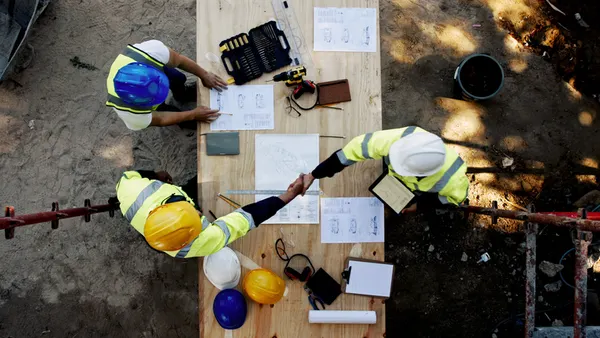Matt Verderamo is a consultant at Well Built Construction Consulting, a Baltimore-based firm that delivers strategic consulting, facilitation services and peer roundtables for construction executives. Opinions are the author’s own.
Most contractors say they want to be treated like a partner by their customers. That’s seldom the case, however, because they chase approval instead of building authority.
Here’s the uncomfortable truth: The only reliable way a customer sees you as a partner is if they see you as an authority — someone who consistently gets results. Not a vendor. Not a helper. An authority.

Subs and GCs often confuse “keep the customer happy” with “do whatever they say.” I’ll never tell you to make the experience on one of your projects miserable — part of your job is absolutely to give the customer a positive experience — but it is not your job to say “yes” to every request. It is to get outcomes, to get the job done on time and on budget.
A quick example: A GC tells you to work out of sequence with another sub and you know it will create rework. You’ve got two options:
- Approval: “You got it.” You do it their way, hope it works and fight about the cost if/when it doesn’t.
- Authority: “No. Here’s why, here’s the risk and here’s what we’ll do to hit your schedule and spec.” You put your name on a better way and then deliver it.
That moment is the fork in the road. Authority requires being direct, credible and right. Direct enough to say the hard thing. Credible enough that they’ll listen. Right enough that when they follow you, the result proves the point.
How do you build that kind of authority?
- Speak in facts, not opinions. Tolerances, lead times, crews, safety concerns. Back your statements with data and past performance. Opinions matter very little. What are the facts?
- State your recommendation clearly. “We will do X by Y because of Z.” Not “this should work.” You have to commit.
- Own the outcome. If you call the play, you own the outcome, whether you win or lose. Make sure you win a lot more than you lose, but when you do lose, don’t hide from it. And when you win, kindly remind the customer.
And yes, balance matters. Authority without empathy becomes arrogance. But empathy without authority is just people-pleasing. The target is simple: two-way respect. You tell the truth about the work; you work hard to make the truth improve the project and customer experience.
What happens when you operate this way? Customers stop directing and start asking. Direction shifts from commands to asking for recommendations. And negotiated work appears because you’re adding value to projects, not solely bidding them.
If you spend your days rolling over, you’ll be treated like a service provider. If you spend your days telling customers what needs to be done — and then delivering it — you’ll be treated like a partner.














